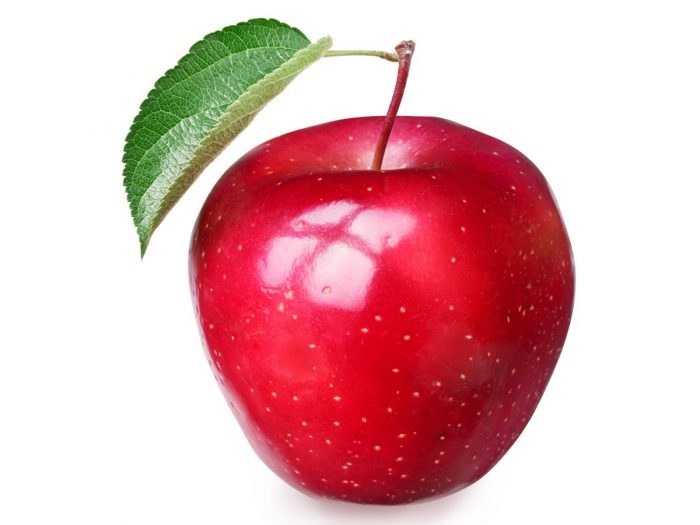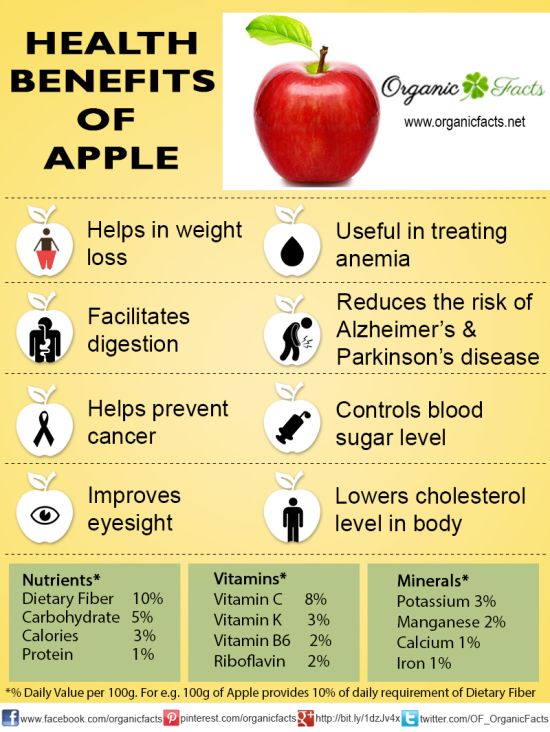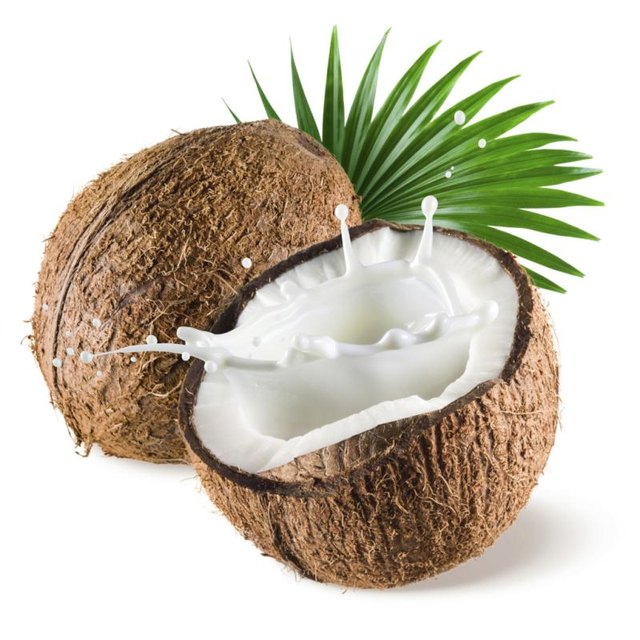What Vitamins Are in Tomato Juice?

Tomato juice's unique balance of nutrients, including the cartenoid known as lycopene, appear to give the beverage special properties, notes the nonprofit website WHFoods.org, which studies "the world's healthiest foods." Tomatoes and tomato juice have been shown to have anti-inflammatory properties, to reduce blood clots and to be an effective antioxidant. Part of this remarkable effect comes from the vitamins with which the fruit is packed. For optimum health, choose a low-sodium tomato juice variety.
Vitamin C
An 8-oz. glass of tomato juice supplies you with almost three-quarters of the daily recommended dose of vitamin C, or ascorbic acid. The nutrient, which many people associate only with citrus fruits, is a strong antioxidant. Antioxidants fight the effect of common environmental and food toxins known as "free radicals," which contribute to disease and aging. The University of Maryland Medical Center notes that researchers believe vitamin C helps protect against high blood pressure and may also minimize artery damage associated with heart disease. The body can't make collagen without vitamin C, so consuming tomato juice and C-rich foods may help ward off osteoarthritis, according to UMMC. Other foods high in vitamin C include citrus fruits and juices, green peppers, strawberries and broccoli.
Vitamin A
Contributing 22 percent of your daily vitamin A requirement, tomato juice is a good addition to A-rich plant foods like carrots, apricots and leafy green vegetables, as well as animal products such as liver, eggs and milk. Interestingly, the plants which contribute vitamin A to humans don't actually contain it. The body converts cartenoids such as beta carotene in the plants into vitamin A. The nutrient, also known as retinol, helps you maintain strong vision. UMMC points out that children who are deficient in Vitamin A are more prone to serious infections, including measles. According to WHFoods.org, signs of a lack of vitamin A include "goosebump-like" skin, night blindness and frequent infections. Like vitamin C, vitamin A provides antioxidant protection, especially against colon cancer, asthma, complications from diabetes and atherosclerosis.
Vitamin B6
While it also contains the B vitamins niacin, thiamin and riboflavin, tomato juice is richest in B6, also known as pyridoxine. Foods highest in the nutrient include bananas, liver, chicken breast, beef tenderloin and several kinds of fish. Tomato juice gives you about 13 percent of the recommended amount of daily B6. Like the other B vitamins, B6 helps the body produce energy and efficiently process protein and fats. B6 additionally contributes to healthy sleep and mood patterns by helping the body generate melotonin, serotonin and norepinephrine hormones, according to UMMC.
Additional Nutrients
An 8-oz. glass of tomato juice also provides about a quarter of the daily recommended value of calcium. Other nutrients in tomato juice include vitamins B1, B2, B3, B12 and E, along with iron, phosphorous, magnesium, manganese and zinc.

Tomato juice's unique balance of nutrients, including the cartenoid known as lycopene, appear to give the beverage special properties, notes the nonprofit website WHFoods.org, which studies "the world's healthiest foods." Tomatoes and tomato juice have been shown to have anti-inflammatory properties, to reduce blood clots and to be an effective antioxidant. Part of this remarkable effect comes from the vitamins with which the fruit is packed. For optimum health, choose a low-sodium tomato juice variety.
Vitamin C
An 8-oz. glass of tomato juice supplies you with almost three-quarters of the daily recommended dose of vitamin C, or ascorbic acid. The nutrient, which many people associate only with citrus fruits, is a strong antioxidant. Antioxidants fight the effect of common environmental and food toxins known as "free radicals," which contribute to disease and aging. The University of Maryland Medical Center notes that researchers believe vitamin C helps protect against high blood pressure and may also minimize artery damage associated with heart disease. The body can't make collagen without vitamin C, so consuming tomato juice and C-rich foods may help ward off osteoarthritis, according to UMMC. Other foods high in vitamin C include citrus fruits and juices, green peppers, strawberries and broccoli.
You Might Also Like
Vitamin A
Contributing 22 percent of your daily vitamin A requirement, tomato juice is a good addition to A-rich plant foods like carrots, apricots and leafy green vegetables, as well as animal products such as liver, eggs and milk. Interestingly, the plants which contribute vitamin A to humans don't actually contain it. The body converts cartenoids such as beta carotene in the plants into vitamin A. The nutrient, also known as retinol, helps you maintain strong vision. UMMC points out that children who are deficient in Vitamin A are more prone to serious infections, including measles. According to WHFoods.org, signs of a lack of vitamin A include "goosebump-like" skin, night blindness and frequent infections. Like vitamin C, vitamin A provides antioxidant protection, especially against colon cancer, asthma, complications from diabetes and atherosclerosis.
-
- Hàng Đức Chính Hãng 100%
Sữa Aptamil,chăm sóc sức khỏe,TPCN .Sản phẩm cho bé, da,móng và tóc
cdgermany.vn
- Hàng Đức Chính Hãng 100%
Vitamin B6
While it also contains the B vitamins niacin, thiamin and riboflavin, tomato juice is richest in B6, also known as pyridoxine. Foods highest in the nutrient include bananas, liver, chicken breast, beef tenderloin and several kinds of fish. Tomato juice gives you about 13 percent of the recommended amount of daily B6. Like the other B vitamins, B6 helps the body produce energy and efficiently process protein and fats. B6 additionally contributes to healthy sleep and mood patterns by helping the body generate melotonin, serotonin and norepinephrine hormones, according to UMMC.
Additional Nutrients
An 8-oz. glass of tomato juice also provides about a quarter of the daily recommended value of calcium. Other nutrients in tomato juice include vitamins B1, B2, B3, B12 and E, along with iron, phosphorous, magnesium, manganese and zinc.
























 Cancer Prevention: The role of
Cancer Prevention: The role of 


